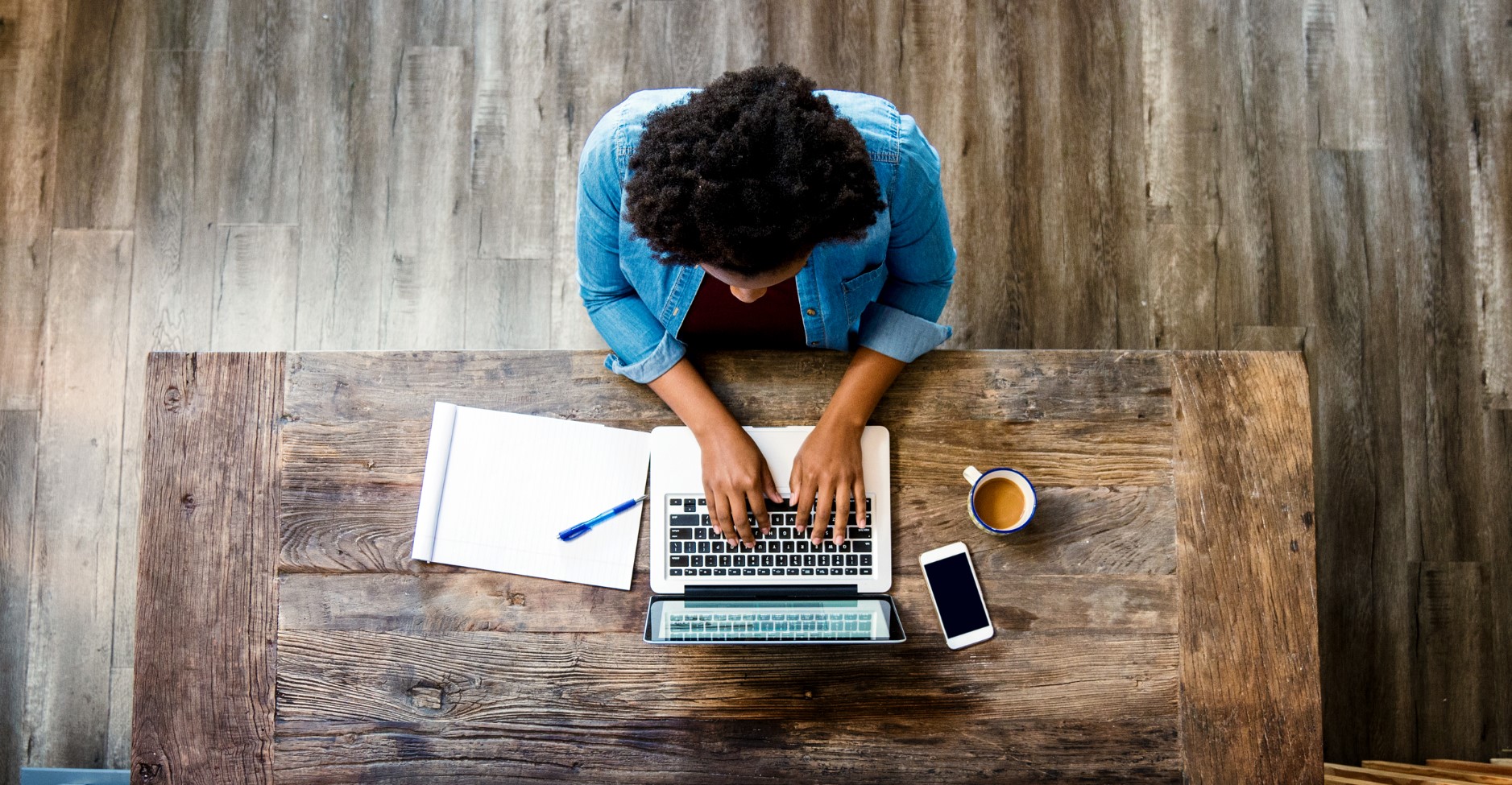
Coffee, one of the most beloved beverages worldwide, has gained immense popularity for its ability to kickstart the day and keep people awake during long hours of work or study. Beyond its reputation as a wake-up elixir, coffee has been linked to enhancing creativity and imagination. In this article, we’ll delve into the science behind coffee’s effects on the brain and explore how it can contribute to a more productive and imaginative mind.
The Science Behind Coffee’s Effects on the Brain
When you take that first sip of coffee, the caffeine quickly finds its way into your bloodstream and crosses the blood-brain barrier. Once inside the brain, caffeine blocks adenosine, a neurotransmitter responsible for promoting sleepiness. As a result, the brain becomes more alert and focused, leading to increased productivity.
Furthermore, coffee stimulates the release of dopamine and norepinephrine, neurotransmitters associated with pleasure and arousal. This heightened state of mental arousal can lead to enhanced creativity and the ability to think outside the box.
Coffee as a Mood Booster
Coffee, one of the world’s favorite beverages, does more than just wake you up in the morning. It has the power to elevate your mood and brighten your day. Here’s how coffee serves as a mood booster:
- Reducing Stress: Sipping on a warm cup of coffee can provide a sense of comfort and relaxation, helping to alleviate stress and tension. The aroma and warmth of coffee can create a soothing and calming effect.
- Enhancing Alertness: The caffeine in coffee stimulates the central nervous system, leading to increased alertness and mental focus. This heightened state of mind can promote a more positive outlook and mood.
- Boosting Happiness: Coffee consumption has been linked to an increase in the release of dopamine, a neurotransmitter associated with pleasure and happiness. As a result, enjoying a cup of coffee can make you feel happier and more content.
- Improving Social Interaction: Coffee breaks are not only an opportunity to recharge but also a chance to connect with others. Engaging in conversations over coffee can improve social interactions, fostering a sense of belonging and happiness.
- Promoting a Positive Routine: Incorporating coffee into your daily routine can create a positive habit, which can have a significant impact on mood and overall well-being. The anticipation of a delicious cup of coffee can bring joy to your mornings.
- Providing a Sense of Energy: The caffeine in coffee provides a natural boost of energy, combating feelings of lethargy and fatigue. Feeling energized can contribute to a more positive and motivated outlook on the day ahead.
- Reducing the Risk of Depression: Studies have shown that moderate coffee consumption is associated with a lower risk of depression. The mood-enhancing properties of coffee may play a role in supporting mental health.
- Comfort in Familiarity: For many people, coffee is a familiar and comforting beverage. The act of enjoying a cup of coffee can bring a sense of familiarity and stability, which can positively impact mood.
- Creating Rituals and Rituals as Mood Enhancers: The ritual of preparing and savoring coffee can be therapeutic and mood-enhancing. Engaging in rituals can provide a sense of mindfulness and present-moment awareness, promoting a more positive mindset.
- Encouraging Mindfulness: Taking a moment to enjoy a cup of coffee mindfully can help individuals become more aware of their emotions and thoughts. Mindfulness practices have been shown to reduce stress and improve mood.
In summary, coffee goes beyond being a simple beverage; it has the power to boost mood and brighten your day. Whether it’s the comforting aroma, the social interactions, or the caffeine-induced alertness, coffee can play a significant role in promoting a positive outlook and overall well-being. So, the next time you reach for that cup of coffee, savor the moment and let it lift your spirits.
Coffee and Brain Function
Apart from its impact on mood, coffee has been linked to improved cognitive functions such as memory, attention, and problem-solving skills. The antioxidants in coffee have neuroprotective effects, which may contribute to better brain health in the long run. By keeping the brain sharp and active, coffee can help individuals overcome creative blocks and generate fresh ideas.
Coffee and Imagination
Throughout history, many famous creative minds have turned to coffee as a source of inspiration. From writers like Honore de Balzac to artists like Vincent van Gogh, coffee has played a significant role in stimulating their imagination and enhancing their artistic endeavors. The simple act of sipping a cup of coffee can trigger a flow of thoughts and ideas that may not have surfaced otherwise.
Finding the Right Balance
Finding the right balance with coffee consumption is essential to harness its creativity-boosting benefits without experiencing negative side effects. Here are some factors to consider and tips for striking that perfect balance:
| Factors to Consider | Tips for Finding Balance | Benefits of Balance |
| 1. Caffeine Sensitivity | – Pay attention to how your body reacts to caffeine. | – Avoid jitteriness and anxiety caused by excessive caffeine. |
| – Limit intake if you’re sensitive to caffeine’s effects. | – Experience increased focus and alertness without discomfort. | |
| 2. Daily Intake | – Set a daily limit for coffee consumption. | – Enjoy the creative benefits of coffee consistently. |
| – Stick to the recommended amount (1 to 3 cups). | – Prevent dependence on excessive caffeine for creativity. | |
| 3. Timing | – Avoid drinking coffee too late in the day. | – Ensure quality sleep, which is crucial for creative thinking. |
| – Give yourself ample time to metabolize caffeine. | – Experience enhanced productivity during waking hours. | |
| 4. Hydration | – Balance coffee intake with water consumption. | – Stay adequately hydrated for optimal brain function. |
| – Avoid excessive dehydration caused by coffee’s diuretic effect. | – Maintain focus and mental clarity for creative tasks. | |
| 5. Variety | – Explore alternative beverages for creativity boosts. | – Discover new sources of inspiration and stimulation. |
| – Incorporate herbal teas or green tea into your routine. | – Prevent dependence on coffee while maintaining creativity. | |
| 6. Listen to Your Body | – Pay attention to how coffee affects your mood and energy levels. | – Adjust consumption based on your unique needs. |
| – Be mindful of any negative effects and adjust accordingly. | – Maximize the positive impact of coffee on creativity. |
By considering these factors and implementing the suggested tips, you can find the right balance with coffee consumption to optimize your creativity without compromising your well-being. Remember that moderation is key, and being attuned to your body’s signals will help you make the most of coffee’s creative benefits while maintaining overall health and productivity.
Incorporating Coffee into Creative Rituals
To make the most of coffee’s creativity-boosting effects, consider incorporating it into daily creative rituals. For instance, pairing a cup of coffee with mindfulness exercises or setting aside dedicated time for brainstorming can help channel the increased focus and alertness toward creative endeavors.
Coffee and Social Interaction
Coffee shops have long been known as hubs for creative minds to gather, exchange ideas, and collaborate. The social aspect of coffee consumption can contribute to the development of a supportive creative community. Engaging in discussions over coffee can lead to exciting collaborations and fresh perspectives on creative projects.
Creative Coffee Recipes
Beyond the traditional cup of black coffee, there are various creative coffee recipes to explore. From creamy lattes with artistic foam designs to invigorating iced coffee concoctions, these beverages can add an extra layer of excitement to the creative process.
Here are three unique coffee recipes to try:
- Caramel Macchiato Delight: A delightful blend of espresso, caramel sauce, frothy milk, and a drizzle of caramel on top.
- Mocha Madness: A rich combination of espresso, chocolate syrup, steamed milk, whipped cream, and a sprinkle of cocoa powder.
- Vanilla Dream: An aromatic mix of espresso, vanilla syrup, milk, and a touch of cinnamon for added warmth.
The Role of Coffee Shops in Creative Communities
Coffee shops have evolved into more than just places to grab a quick drink; they are now synonymous with creative environments. The cozy ambiance, the aroma of freshly brewed coffee, and the presence of like-minded individuals contribute to a conducive atmosphere for generating new ideas and fostering creativity.
Coffee and Innovation in the Workplace
Many forward-thinking companies recognize the link between coffee and creativity, leveraging it as a tool to enhance employee productivity and innovation. By providing high-quality coffee in the workplace, they encourage employees to take breaks, collaborate, and share creative insights.
Coffee Alternatives for Creativity
While coffee is undoubtedly a popular choice, there are other beverages and practices that can also contribute to creativity. Some people find herbal teas, green tea, or even meditation to be valuable allies in unlocking their imaginative potential.
In conclusion, coffee offers more than a morning pick-me-up; it can be a powerful ally in boosting productivity and imagination. The combination of caffeine-induced mental alertness and mood elevation makes coffee an ideal companion for creative individuals. Remember, moderation is key, and finding the right balance will ensure that you harness the full potential of coffee’s creative benefits without any adverse effects.
FAQs:
- Is decaffeinated coffee effective for creativity?
- Decaffeinated coffee may have a milder effect on creativity since it lacks caffeine’s stimulating properties. However, some individuals still find it helpful due to the comforting ritual and taste of coffee.
- Can too much coffee hinder creativity?
- Yes, excessive coffee consumption can lead to jitters, restlessness, and increased anxiety, which can hamper creativity.
- What time of day is best for drinking coffee to boost creativity?
- The best time to drink coffee for creativity may vary among individuals. Many find that morning or early afternoon works well, allowing the caffeine to wear off before bedtime.
- Are there any creative alternatives to coffee for non-coffee drinkers?
- Yes, herbal teas, green tea, or even engaging in meditation and mindfulness practices can also aid in fostering creativity.
- Can coffee make you more imaginative instantly?
- While coffee can enhance mental alertness and potentially stimulate creativity, immediate effects may vary among individuals. Regular consumption and the establishment of creative rituals may yield more consistent results.
